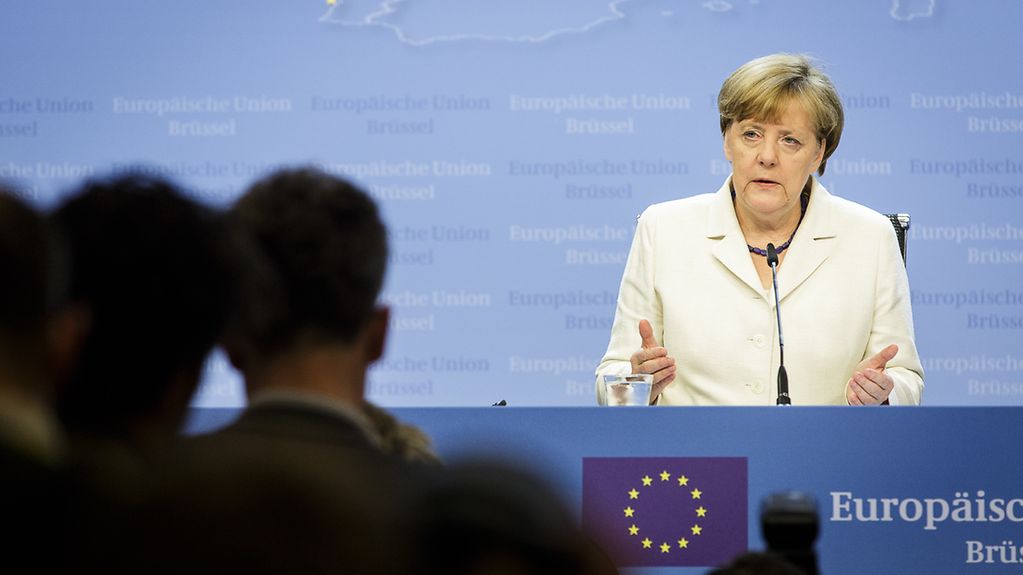Euro-zone states reach agreement with Greece
The way ahead is now clear for negotiations leading to an assistance programme for Greece. Now, said Angela Merkel, it is a question of implementing what has been agreed "step by step". Athens must adopt far-reaching reforms, push through privatisations to reduce debt, and foster investment.

Angela Merkel full-heartedly recommends that negotiations begin
Photo: Bundesregierung/Denzel
The heads of state and government of the 19 euro-zone member states agreed on a comprehensive reform package, opening the way for negotiations to commence on an ESM programme. Chancellor Angela Merkel said she would be full-heartedly recommending that the German Bundestag approve the start of negotiations.
By Wednesday Athens must push a whole series of fundamental reforms through the Greek parliament, and endorse the agreed document in its entirety. Then the German Bundestag and other national parliaments can vote on the mandate for negotiations, explained Chancellor Angela Merkel after 17 hours of negotiations in Brussels over a third assistance package for Greece.
Speaking to the press in Brussels, the Chancellor said that the advantages of the agreement reached outweigh the disadvantages. These agreements must now be implemented step by step, and that is the responsibility of the Greek leaders. The Chancellor assumes that Greece will need financial assistance totalling between 82 and 86 billion euros over the next three years.
Greek parliament must decide by 15 July
Before the Chancellor recommends to the German Bundestag that it approve a mandate to negotiate, the Greek parliament has until Wednesday to pass laws, among other things, reforming its VAT system and pensions, safeguarding the legal independence of its statistics agency and fully implementing the provisions of the Treaty on Stability, Coordination and Governance in the Economic and Monetary Union (Fiscal Compact). The Greek parliament must also endorse all the commitments laid out in the package of decisions agreed at the summit. One week later the Greek parliament must decide on the recapitalisation of the country’s banks.
Further extensive reforms must follow over the next three years embracing pensions, product markets, the labour market and privatisations.
Independent fund for debt reduction and investment
In an effort to reduce Greek debt and foster investment, 50 billion euros of revenue from privatisations is to be paid into an independent fund. Of this total, 12.5 billion euros will be available for investment. There will be no debt "haircut" said the Chancellor, but the Eurogroup is willing to talk about extending the term of loans.
Institutions to return to Athens
A great deal of time will be needed to draft the final version of the assistance programme, but the Chancellor "assumes that this will now go ahead", and that the Greek parliament will pass the necessary legislation. The three institutions, the International Monetary Fund, the European Central Bank and the European Commission will be returning to Athens to oversee Greece’s reforms. The IMF will remain on board as a creditor.
Finance ministers to discuss bridge financing
Given Greece’s acute need for cash as repayment deadlines loom, the Eurogroup finance ministers will meet today to discuss bridge financing.
No vote of confidence, says Angela Merkel
The Chancellor does not intend to link the vote of the German Bundestag over a mandate to negotiate an ESM assistance package to a vote of confidence. She stressed that the Greek parliament must first vote, before a motion is placed before the German Bundestag. She will discuss this with the Bundestag President and the parliamentary groups in the German Bundestag.